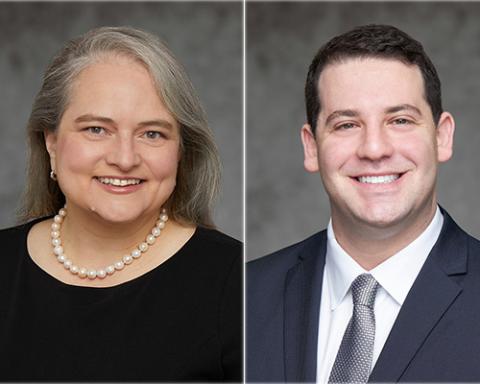Maximizing Distressed Situations to Business Advantage

The COVID-19 pandemic stressed retailers on the brink as well as those vulnerable to e-commerce. U.S. e-commerce grew 32% in 2020 to reach $790 billion and comprised 14% of total retail sales in 2020, compared to 11.3% in 2019.
With some of the “stay at home economy” continuing, a greater online presence could expand clientele. McKinsey & Co. found 73% of shoppers have tried new brands, sites, and retailers through online shopping and 75-85% expect to continue. Online retail is here to stay.
Yet online shopping is often less gratifying than in-store experiences. It also fails to give consumers a chance to use all five senses when shopping. Although resiliency is expected for brick-and-mortar, winning strategies require a sharp eye on online retail trends and investments.
Companies such as Pier 1 Imports used bankruptcy to shed leases and transition online. But such cases also present opportunities for growing retailers. Buying leases out of distressed situations, for example, could mean efficient expansion.
Läderach, a Swiss chocolatier with a relatively small U.S. footprint, assumed the leases of 34 Godiva locations when Godiva exited its 128 U.S. stores to focus on online and retail partner sales. Similar opportunities exist with other retailers rationalizing their store footprint, a process accelerated by the pandemic.
Whether exploiting physical assets or expanding online or both, distressed situations offer creative opportunities. Here are a few strategies to drive growth during an unsettled time.
1. Getting More Out of Real Estate
The Federal Reserve recently cautioned that commercial real estate prices “appear susceptible to sharp declines,” presenting an opportunity for deals. Numerous retailers have renegotiated their leases to amortize deferred rent over the remaining lease term. Rent deferrals have led to a $40 billion bubble, which may lead to more litigation and bankruptcies.
Retailers with sound financials may find bargains on commercial leases rejected in bankruptcy cases. Healthy retailers can leverage incentives, such as landlords paying lease-termination fees.
Downturns in the real estate market provide retail chains a window to affordably expand their physical footprint. Additional stores may improve profits as economies of scale take over, providing more buying power with wholesalers, and consolidating administrative costs, which generally remain fixed regardless of the number of stores.
An online footprint still requires some physical presence with many consumers still hesitant to purchase many goods without experiencing the product in-person. Reducing upfront leasing costs supports profitable growth.
If instead of growth a company is struggling to keep the lights on, the Consolidated Appropriations Act, signed into law on December 27, 2020, temporarily incentivizes landlords to defer rent by prohibiting avoidance actions for deferred rent paid within 90 days of a bankruptcy filing. This amount cannot include late fees, penalties, or default interest that came due before March 13, 2020.
The debtor/trustee is prohibited from recovering deferred rent payments as a preference if the debtor and the landlord meet three criteria: (1) the lease was executed before the bankruptcy filing date; (2) the lease was amended on or after March 13, 2020 to defer payments; and (3) the payments initially due under the lease were actually deferred as agreed.
Whatever the situation, this post-pandemic economy seems ripe for real estate negotiations and accommodations.
2. Leveraging Leases from Bankrupt Companies
The Consolidated Appropriations Act also provides debtors up to 210 days (and with an extension, 300 days) to assume or reject leases in bankruptcy. Previously, debtors had 120 days to pay post-petition rent obligations. Assumption of a lease requires a debtor to cure all defaults and assure future performance.
Although some leases contain restrictions on assignments, these provisions are typically unenforceable in bankruptcy. Because long-term leases often have some discount on the price per square foot built into the lease’s terms, an assignee may pay a premium to purchase a below-market lease. Other times, landlords may pay debtors to reject the lease.
If you are interested in purchasing a lease from a large retailer, you may use a claims agent website to peruse rejected leases. Claims agents are used in large bankruptcies to perform administrative tasks like sorting proofs of claim and notifying creditors. They are easily found in a Google search. The largest claims agents include Epiq, Donlin Recano, Prime Clerk, and Omni. As a bankruptcy case progresses, you may receive alerts and periodically search for motions about rejected leases. Once you find a case or lease of interest, contact your attorney or the landlord.
Special provisions apply when leasing space in a shopping center. Because other shopping center tenants could be negatively affected by assumption, section 365(b)(3) of the Bankruptcy Code requires prospective shopping center tenants to: (1) adequately assure future performance; (2) show that the percentage rent will not decline substantially; (3) remain subject to lease provisions; and (4) not disrupt the tenant mix.
3. Minding Online Opportunities
Retailers may also use distressed situations to purchase assets, such as intellectual property, customer lists, and e-commerce platforms. When The Limited filed for bankruptcy in 2017, Sycamore Partners purchased the e-commerce business and intellectual property.
Retail Ecommerce Ventures purchased Pier One Import’s intellectual property, customer lists, and other assets. Retail Ecommerce Ventures also purchased the assets of Stein Mart, Dressbarn, and Modell’s Sporting Goods for an online-only business. CSC Generation bought customer records, email addresses, trademarks, and websites of Carson Pirie Scott department stores, better known as Carson’s. CSC Generation briefly relaunched the brand with an Evergreen Park, Illinois store, now closed, and continues with the online business.
Authentic Brands Group and Simon Property Group recently purchased brands in distress such as Brooks Brothers and Juicy Couture. This strategy is sometimes characterized as a win-win: Authentic Brands Group grows its licenses while Simon Property retains tenants. Whether this partnership will succeed remains unclear.
Distressed retailer cases vary in asset sale and lease opportunities depending on the prior business strategy and workout path. Intrepid and well-resourced retailers may find them worthwhile for experimentation and growth.
Candice Kline is a partner in Saul Ewing Arnstein & Lehr’s Chicago office and focuses on bankruptcy and corporate restructuring matters. Andrew Rudolph is a bankruptcy and restructuring associate in Saul Ewing Arnstein & Lehr’s Chicago office.




